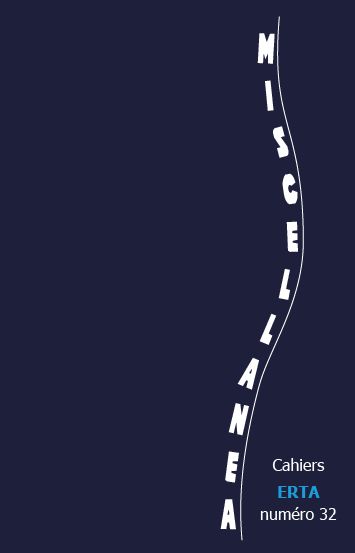« Je m’attache tristement, amèrement aux lieux que je vais quitter ». L’écriture autobiogéographique dans les "Carnets du voyage en Égypte" d’Eugène Fromentin
Mots-clés :
Eugène Fromentin, autobiogéographie, Égypte, récit de voyageRésumé
The present paper analyses Carnets du voyage en Égypte by a French painter and writer, Eugène Fromentin (1820-1876), using the concept of autobiogeography. The concept allows to examine how the author of a geographical description may be seen throughout this description and how s/he is influenced by the space. The paper argues that the personality of Fromentin emerges from his travel notes even though they are focused mainly on the description of the Egyptian space and the forms “I” or “we” appear there rarely. Three aspects of Fromentin’s personality may be seen through the analyses of his geographical descriptions of Egypt: the Orientalist painter enthusiastic towards the space; the traveler marked by his previous travels to Algeria who in Egyptian spaces sees Algerian ones; and the man who feels old and tired, refuses to discover the Egyptian space and who just wants to come back home.
Téléchargements
Références
Calbérac Y., Volvey A., « Introduction », [dans :] Géographie et cultures, 2014, no 89-90.
Carré J.-M., « Introduction », [dans :] E. Fromentin, Voyage en Égypte, éd. J.-M. Carré, Paris, Éditions Montaigne, 1935.
Chateaubriand F. (de), Itinéraire de Paris à Jérusalem, éd. J.-C. Berchet, Paris, Gallimard, 2005.
Christin A.-M., Berrong R. M., « Space and Convention in Eugène Fromentin : The Algerian Experience », [dans :] New Literary History, 1984, no 3 (15), 1984.
Collot M., « Pour une géographie littéraire », [dans :] Fabula-LhT, n° 8, « Le Partage des disciplines », 2011, http://www.fabula.org/lht/8/ collot.html.
Du Camp M., Souvenirs littéraires, t. II : 1850–1880, Paris, Hachette, 1906.
Fromentin E., « Carnets du voyage en Égypte », [dans :] Idem, Œuvres complètes, éd. G. Sagnes, Paris, Gallimard, 1984.
Gannier O., La littérature de voyage, Paris, Ellipses, 2001.
Goncourt E. (de), Goncourt J. (de), Journal des Goncourt. Mémoires de la vie littéraire, t. V : 1872-1877, Paris, Bibliothèque-Charpentier, 1891.
Gregory-Guider Ch. C., « Sinclair's Rodinsky's Room and the Art of Autobiogeography », [dans :] Literary London: Interdisciplinary Studies in the Representation of London, 2005, no 2 (3), http://www. literarylondon.org/london-journal/september2005/guider.html.
Guentner W. A., « Fromentin voyageur et la tradition de l’esquisse littéraire », [dans :] Revue d'Histoire littéraire de la France, 1991, no 6.
Lejeune Ph., Le Pacte autobiographique, Paris, Seuil, 1996.
Rybicka E., Geopoetyka. Przestrzeń i miejsce we współczesnych teoriach i praktykach literackich, Kraków, Universitas, 2020.
Thompson J., Wright B., Eugène Fromentin. 1820-1876. Visions d’Algérie et d’Égypte, trad. J. Coignard, Paris, ACR Édition, 2008.
Tudoret P., Fromentin. Le roman d’une vie, Paris, Les Belles Lettres, 2018.
Westphal B., « Pour une approche géocritique des textes », [dans :] Idem (dir.), La Géocritique, mode d’emploi, Limoges, PULIM, 2000.
Wright B., Beaux-arts et belles-lettres : la vie d’Eugène Fromentin, trad. I. Ayaseh avec la collaboration de l’auteur, Paris, Honoré Champion, 2006.

 Revues scientifiques académiques
Revues scientifiques académiques





